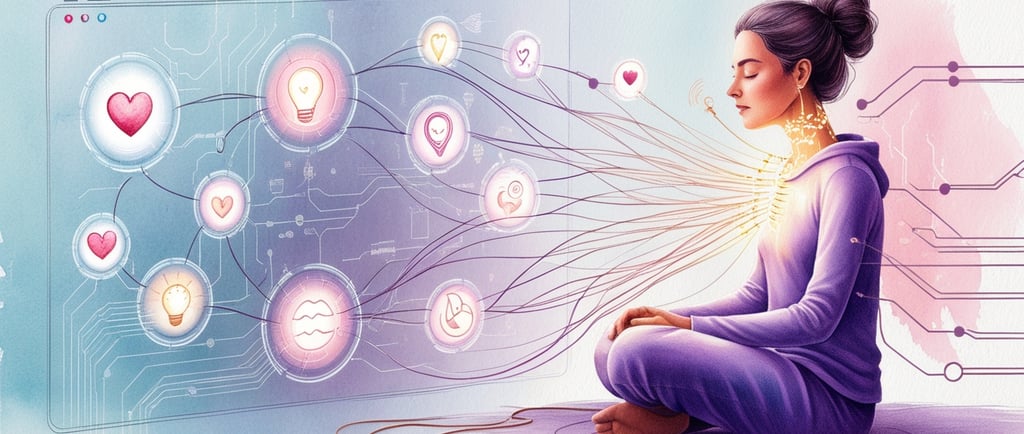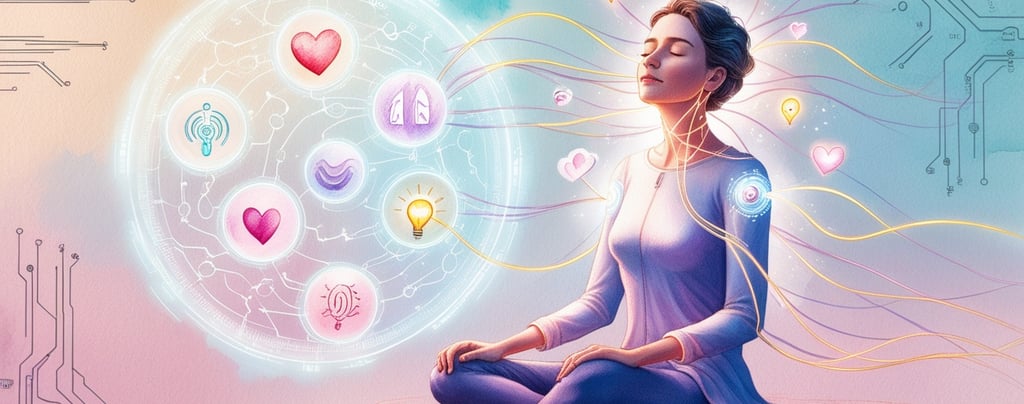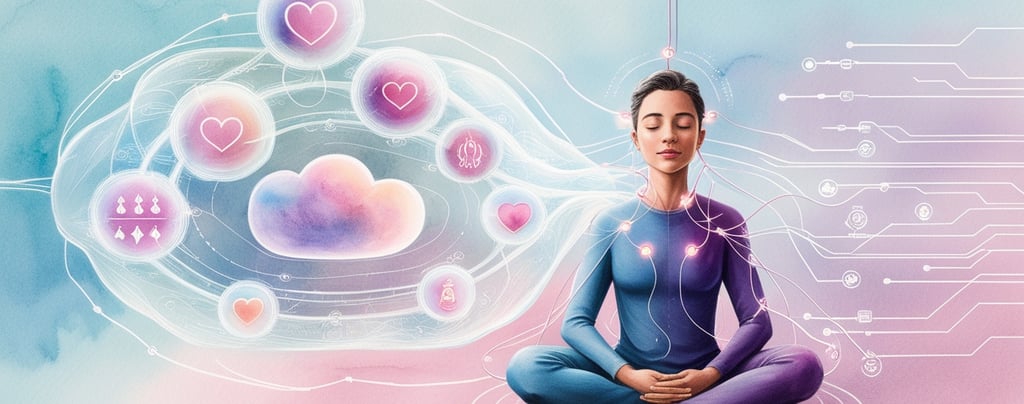Code Happiness and Delete Fear: Exploring Emotions
Discover the fascinating intersection of technology and emotions. Can we code happiness, delete fear, or install love like an app? Explore the science, risks, and possibilities of programming our emotions like software.
Black Heart
4/17/20254 min read


What If Emotions Could Be Programmed Like Software?
Introduction
I’ve always wondered what life would be like if feelings weren’t so messy. Imagine being able to just… install happiness, delete anxiety, or update love like you’re patching an app. Sounds like a sci-fi plot, right? But here’s the thing: with neuroscience, AI, and genetic engineering racing forward, it might not stay fiction forever.
So let’s explore this together. What if emotions, our deepest, most human traits, could be coded, hacked, and programmed like lines of software?
What Do We Mean by “Programming Emotions”?
When I say “programming emotions,” I don’t mean faking a smile. I mean literally controlling the brain’s chemical and electrical patterns that generate emotions. Right now, scientists know that:
Dopamine fuels reward and motivation.
Serotonin regulates mood.
Oxytocin builds trust and love.
Cortisol triggers stress.
If we could write “code” for these neurotransmitters and their networks, then emotions could be switched on and off like apps. Imagine a menu in your brain: “Today I’ll run ‘Confidence 2.0’ and uninstall ‘Anxiety Beta.’”
The Tools We Already Have (Baby Steps to Emotional Programming)
Believe it or not, we’ve already started.
Antidepressants: They already tweak serotonin. Not perfect, but it’s chemical programming.
Brain stimulation: Devices like transcranial magnetic stimulation (TMS) can lift depression by zapping neural circuits.
AI-driven mood tracking apps: These don’t reprogram emotions yet, but they predict them and suggest interventions.
CRISPR & gene editing: Could rewrite emotional tendencies before you’re even born.
It’s crude now, but it’s the prototype stage of something much bigger.


What If Happiness Could Be Installed?
Picture this: no more chasing meaning, therapy, or expensive self-help retreats. You wake up, load “Happiness.exe,” and you’re set for the day.
Pros:
Depression might vanish.
Productivity skyrockets.
Society might feel more stable.
Cons:
Would happiness mean anything if it’s just preloaded?
Could governments “force-install” obedience or fake joy?
Would we still grow, struggle, and find meaning if negative emotions disappear?
Happiness becomes like a Netflix subscription, accessible anytime. But is it still real happiness if it’s coded?
Love as a Downloadable Program
This one makes me uneasy. Love is messy, unpredictable, irrational. But what if we could program it?
Couples could install “relationship repair patches.”
Dating apps could literally sync compatible love codes.
You might choose how deeply you love, or even delete heartbreak instantly.
Sounds convenient, right? But… love without choice feels empty. Isn’t the risk and uncertainty what makes it powerful?
Fear and Anger: Delete or Upgrade?
Now imagine a soldier installing “Fearless Mode” before battle, or a negotiator running “Calm Logic” during peace talks. On paper, great. But emotions evolved for a reason:
Fear protects us. Without it, we’d walk into danger.
Anger motivates justice. Without it, injustice could thrive.
If we delete them, maybe we’d gain control, but we might lose the very instincts that kept our species alive.


Could Emotions Be Shared Like Files?
If emotions were software, maybe they could be shared, uploaded, or even pirated. Imagine:
Downloading your favorite artist’s passion while listening to their music.
Sharing pure empathy between cultures by “sending” emotions.
Living inside another person’s feelings, like emotional VR.
But there’s a danger: if emotions can be copied, can they be hacked? Could someone inject fear or rage into you against your will?
The Dark Side: Emotional Dictatorships
If emotions are programmable, who controls the code?
Governments could install loyalty.
Corporations could market happiness only if you buy their product.
Hackers could spread digital “emotional viruses”, panic, despair, or false joy.
The very thing that makes us human, our feelings, could become a battleground of control.
The Philosophy Question: Are Programmed Emotions Real?
Here’s the haunting thought: if you run “Love 3.1” in your brain, is that love? Or just chemicals tricking you?
Philosophers might argue:
If the experience feels real, who cares?
But if it’s not freely chosen, does it still carry meaning?
I think this question would split humanity in two: those who embrace programmable feelings, and those who insist on keeping emotions “organic.”
Key Points (Let’s Break It Down)
Programming emotions means hacking the brain’s code.
We already do primitive versions with meds and brain tech.
Happiness could be installed like an app, but meaning might vanish.
Love could be patched, but would it still matter?
Deleting fear and anger could break evolution’s safety nets.
Shared emotions could unite us, or expose us to hacks.
Governments and corporations might exploit programmable feelings.
We’d have to redefine what “real” emotions are.
My Thoughts
I’ll be honest, I’m torn. The idea of deleting anxiety forever sounds tempting. But I also believe our struggles, heartbreaks, and fears shape us. They give stories depth, friendships meaning, and victories weight.
If emotions were just software, maybe life would be smoother, but would it be richer? Personally, I think programming emotions could help with mental illness and trauma, but for day-to-day life? I’d still want the messy, unpredictable ride of being human.
Because maybe emotions aren’t bugs to fix, they’re the very code that makes us alive.
🔍 FAQs
Q: Could we really program emotions in the future?
Maybe. Advances in neuroscience, brain-computer interfaces, and genetic engineering make it plausible within decades.
Q: Would negative emotions disappear?
We could mute them, but evolution built them for survival. Erasing them might backfire.
Q: Can emotions be hacked?
If they’re software, yes. Emotional hacking could become a terrifying new cybercrime.
🔗 Related Articles from EdgyThoughts.com
🌐 External Resource
Want to dig deeper? Check out Emotions and the Brain on Wikipedia.